
Published by Rowman & Littlefield
An imprint of The Rowman & Littlefield Publishing Group, Inc.
4501 Forbes Boulevard, Suite 200, Lanham, Maryland 20706
www.rowman.com
6 Tinworth Street, London SE11 5AL, United Kingdom
Copyright 2019 by The Rowman & Littlefield Publishing Group, Inc.
All rights reserved . No part of this book may be reproduced in any form or by any electronic or mechanical means, including information storage and retrieval systems, without written permission from the publisher, except by a reviewer who may quote passages in a review.
British Library Cataloguing in Publication Information Available
Library of Congress Cataloging-in-Publication Data
Names: Gieseler, Carly, 1978- author.
Title: The voices of #MeToo : from grassroots activism to a viral roar / Carly Gieseler.
Other titles: The voices of [hashtag] MeToo
Description: Lanham : Rowman & Littlefield, [2019] | Includes bibliographical references and index.
Identifiers: LCCN 2019014919 (print) | LCCN 2019018243 (ebook) | ISBN 9781538128022 (ebook) | ISBN 9781538128008 (cloth) | ISBN 9781538128015 (paperback)
Subjects: LCSH: Sexual abuse victims. | Sex crimesPrevention. | Social media. | Sexual harassmentPrevention.
Classification: LCC HV6625 (ebook) | LCC HV6625 .G54 2019 (print) | DDC 362.883dc23
LC record available at https://lccn.loc.gov/2019014919
 The paper used in this publication meets the minimum requirements of American National Standard for Information SciencesPermanence of Paper for Printed Library Materials, ANSI/NISO Z39.48-1992.
The paper used in this publication meets the minimum requirements of American National Standard for Information SciencesPermanence of Paper for Printed Library Materials, ANSI/NISO Z39.48-1992.
Acknowledgments
The journey of this book began with those two simple words: Me Too. Following the cascade of voices across digital spheres, into marginalized communities, and around the world has been one of the greatest privileges of my life as a scholar-practitioner and human being. Thank you to Tarana Burke, who changed the trajectory of healing. Thank you to all survivors and allies, as well as anyone still searching and learning. Words are not enough to express my gratitude to the many who shared their stories with me personally and with the world.
Many thanks to Elizabeth Swayze, executive editor of the Communication and Media Studies and Conflict Resolution Division at Rowman & Littlefield, for contacting me about this project. Her enthusiasm and guidance inspired me to transform my fledgling presentation piece into an entire book. I also want to thank assistant editor Megan Manzano for her detailed dedication in bringing this text to fruition. My deepest gratitude to the tireless efforts of assistant managing editor Janice Braunstein and copy editor Jo-Ann Parks; I am indebted to both of you for such careful and insightful readings of this manuscript. I consider myself so fortunate to have worked with such an invaluable team at Rowman & Littlefield. Also, much gratitude to my readers and reviewers for their time and considerationtheir suggestions and insights strengthened this project immeasurably.
My home institution of York College within the City University of New Yorkand specifically my colleagues in the Department of Performing and Fine Artshave fostered one of the most supportive, dynamic, and collegial spaces imaginable. While the labor of writing a book might seem a daunting task from the outset, any doubts were vanquished by my colleagues and friends in my department and across all disciplines and departments at York.
Further, my studentsmy many, brilliant, talented, generous, dedicated York College studentshave been an unending source of inspiration. Every moment in every classroom, I am awakened by the insights, challenged by the questions, and awed by the remarkable sense of caring and collaboration demonstrated by this phenomenal group. While this book offers a philosophical overview of the #MeToo movement and its cultural impact at this historical moment, I hope that it helps build understanding, compassion, and communication that might shape a greater future for my students.
Finally, to being supported, nurtured, and loved by family and friends. My unending gratitude and all of my love for a December snowstorm holiday at the nest in South Dakota, typing away while Jinks (Susan-mom), Gomes (Mike-dad), Beans (Megan-sis), and the stampeding doodles (Ace and Syd) chimed in or let me work, to my furry assistant over Thanksgiving in Chicago (Lulu), and for my Newf (Mike) who raised my spirits with the vision of our cabin in the sky... where I write this now.
Authors Note
This text incorporates numerous online posts from Twitter and other cited sources. The majority of these comments were reproduced verbatim. In some cases, the author chose to correct spelling errors or typos for the sake of clarity. These minor changes were made with care to ensure that the edits would not fundamentally alter the original message.
CHAPTER 1
The Social Media Activism of #MeToo
The Silence Breakers
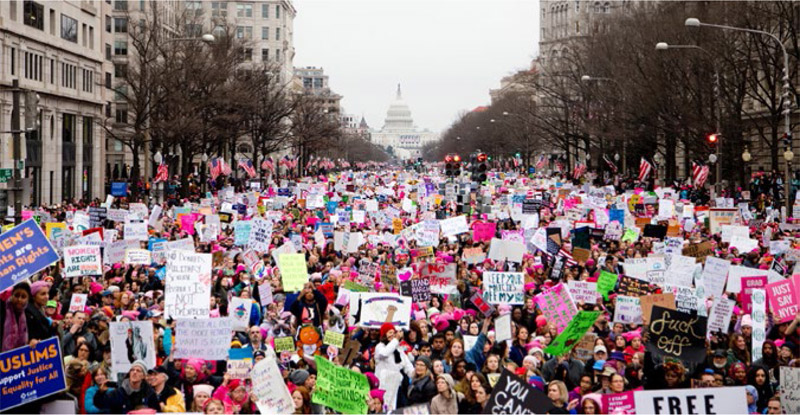
Womens March, Pennsylvania Avenue. Vlad Tchompalov/Unsplash
If youve been sexually harassed or assaulted write me too as a reply to this tweet.
Me Too.
Suggested by a friend: If all the women who have been sexually harassed or assaulted wrote Me too. as a status, we might give people a sense of the magnitude of the problem.
@Alyssa_Milano, October 15, 2017
Following the avalanche of sexual harassment and assault allegations against movie mogul Harvey Weinstein, a social awareness and activism project emerged as people took to Twitter to add their voices to the growing roar of the #MeToo movement. On the suggestion of a friend, on October
In the hours that drew immediate attention to the viral movement, it was soon noted that black feminist activist Tarana Burke originated the Me Too movement a decade prior to Milanos call to action in the trending hashtag.
Shout out to my girl @taranaburke who has been advocating for assault victims & saying #MeToo for years. metoo.support
@BritniDWrites, October 15, 2017
#MeToo. Thank you @TaranaBurke for bringing us this gift of #MeToo almost 10 years ago. Still powerful today.
@aliciagarza, October 16, 2017
Once aware, Milano acknowledged Burkes foundational work in the movement and asked followers to visit Burke and MeToo/#MeToos She spoke of the conversation with a young girl that compelled her to create the movement in 2006. Working as a director at a youth camp, Burke recalled the day the girl followed her down the hall, asking:
Ms. Tarana, can I just talk to you for a second? Everything in my spirit knew that she wanted to tell me this thing... she just opened up and started talking
Burkes grassroots mission was to provide a safe space for sexual abuse victims to step away from shame and silence. She wanted to open a dialogue where these women might find their voices in empathetic concert with others. This was especially significant for the disadvantaged communities where, as Burke said, rape crisis centers and sexual assault workers werent going. This reiterates how women of color and other marginalized populations experience sexual violence in different, intense, and often silenced ways.
Rather than continue the suppression or appropriation of marginalized voices, #MeToo might reveal how identity politics create a greater conversation regarding the intersection of dominant, violent forces against all oppressed communities. This book unravels the ideas and practices of activism throughout the #MeToo movement from its inception to its current viral moment. Detailing the mediated coverage, #MeToo conversation, and surrounding responses to that discourse provides context surrounding #MeToo and the potential for its impact in the future. This text assesses the experiences of marginalized communities and the urgency for #MeToo and all movements to recognize intersectional experiences as sources of empowerment and resistance against oppressive and abusive forces. In exploring these issues of social justice and intersectionality, we may begin to hear and amplify the voices that are often silenced in the louder, viral roar.
Next page


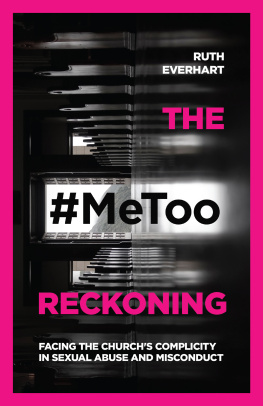
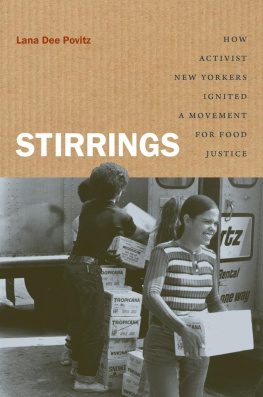
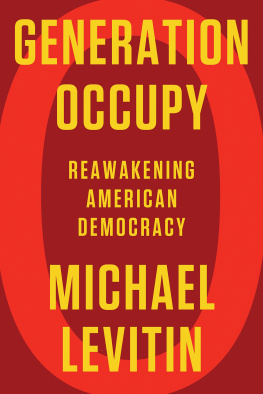
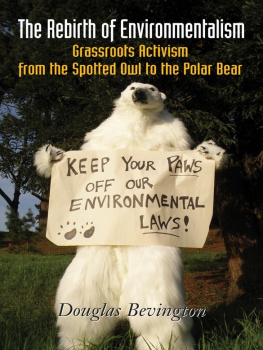


 The paper used in this publication meets the minimum requirements of American National Standard for Information SciencesPermanence of Paper for Printed Library Materials, ANSI/NISO Z39.48-1992.
The paper used in this publication meets the minimum requirements of American National Standard for Information SciencesPermanence of Paper for Printed Library Materials, ANSI/NISO Z39.48-1992.